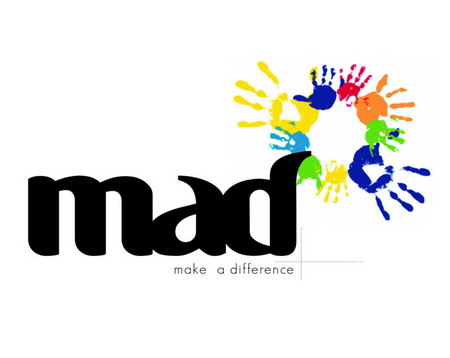Naan nee endru sollum poothu uthadu oddaathu.
Naam endru sonnaal thaan uthadukaL kuuda oddum.
- Kalaingar
While this campaign has been entitle, M.A.D., or ‘Making a Difference’, I want to say a couple of words about something that is equally, if not more, important and central: indifference. Even more specifically (though a bit more implicit): the indifference of youth today.
I don’t think I can answer such a question as easily as it can be posed. But I do think I can make a couple of remarks that are relevant to the discussion (the existence of this campaign and this blog counts as evidence that such a discussion does exist). Why do we feel indifference? A short answer, I think, is we feel indifference towards a person, an issue, an idea , et cetera if we don’t feel a connection or a responsibility to that thing. When it comes to something like a person, an animal, or even the planet, it is when we don’t feel that we have common interests that we become indifferent.We treat that person or thing as exterior to us, and not as part of a larger whole. The irony of indifference is that it is, at core, a perception about states of affairs. That is, we don’t always apprehend things correctly. We can be wrong in indifference. Indeed, we often are. This is, ultimately, the message of this campaign and the sense in which I want to re-appropriate Karunanithi’s pithy aphorism.
I want to broach this question by way of a small example that we can see often in urban Tamil Nadu (including the Loyola campus): trash disposal. Despite the fact that there are trash bins people on Loyola’s campus don’t always use them. They are content with disposing of trash whereve they happen to be standing. Why? First, it is a general habit to throw trash in the street in India. Second, it is convenient. Third, people don’t feel responsible for the state of the environment. While they may complain that things are dirty or polluted, they don’t feel that they should be responsible for keeping it clean. Fourth, and most importantly, they don’t perceive that it is in their (and everyone else’s) interests for the streets to be clean. If they did, they would keep the streets clean, right?
We can ask ourselves, is this indifference ‘correct’ or ‘incorrect’? I think the answer is obvious: it is incorrect. Why? First because it clearly is in everyone’s best interest to keep our surroundings clean. Second, the sense that we are not responsible is an illusion. It’s an illusion because the streets won’t clean themselves up, only people will! Further, we are responsible because it is we who create the situation that must be cleaned up every time we don’t put trash in the trash bins.
That is, we are to blame for the situation itself!
This brings me to the second question I asked above. Why are youth indifferent today? And how can we best address youth indifference? I think we can begin to answer this question by asking, do youth feel responsible for the state of affairs today? Do they feel that they share a common interest with the rest of the society (including other youth)? I want to leave this as an open question because I believe the debate around this question, if it includes youth, can ultimately transform the issue itself. What I do want to say is that a campaign which tries to end youth indifference has to allow youth to feel that they are responsible. Moreover, it has to make them feel that it is in their interests to care. I don’t mean interests in the crass sense of rational cost-benefit calcuation (though ultimately it includes this as well). Rather, I mean it in the sense of empathy, of seeing things from a position that is larger than the individual selfish ego. This means that ending indifference can’t be an attempt to tell youth what to do, what to think, or what to feel. Rather, it has to do with creating an attitude of involvedness, of breaking down the barriers between self and other, between young and old, et cetera. It therefore requires briding the gaps between difference. In the case of youth, this means speaking the language of youth; it means speaking to youth. In short, it requires youth participation not youth address (i.e., preaching/lecturing to youth). I think this is the greatest failure on the parts of those well-wishers who want to change youth by speaking at them: do this, don’t do this, be this way, don’t be this way. Today, at least, preaching is the bedfellow of indifference. We all know how we feel when someone scolds and lectures us!
All such efforts ultimately place youth outside of society. But, as we said above, it is only when one feels part of society, when one’s personal interests are the common interests, that one is not indifferent. I think that the M.A.D. campaign is one right step in this direction, not just because they are putting a number of social issues on the table for discussion, but because they offer a platform of participation (social activism more generally) that can be replicated by anyone who happens to see that it is in their best interest to care about the world around them, and to take responsibility for it.
- Constantine Nakassis

No comments:
Post a Comment